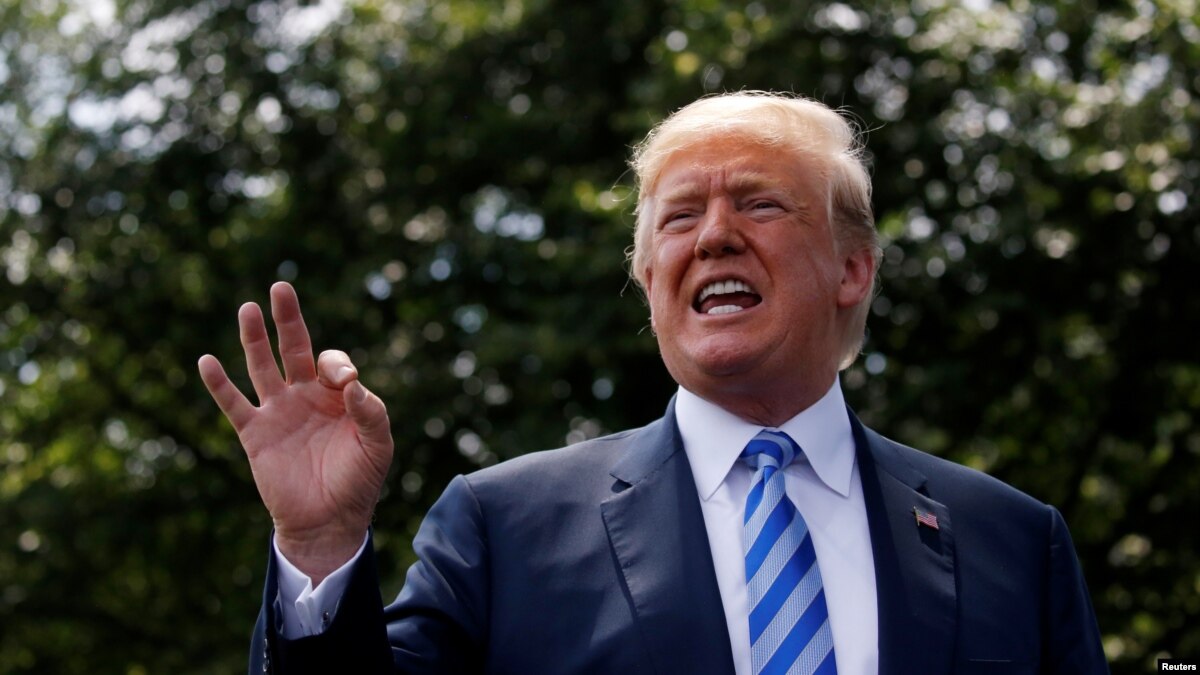
U.S. President Donald Trump on Monday said he had committed no wrongdoing but has the "absolute" power to pardon himself, echoing an sweeping argument put forth by his lawyers amid the U.S. special counsel's investigation into alleged Russian meddling in the 2016 U.S. election.
In the memo to U.S. Special Counsel Robert Mueller, which was sent in January and reported on by the New York Times on Saturday, Trump's lawyers argued the president could not have obstructed the investigation, given the powers granted to him by the U.S. Constitution.
One of Trump's lawyers on Sunday also spoke of Trump's broad claim to power, saying the president probably could pardon himself but was unlikely to do so.
"As has been stated by numerous legal scholars, I have the absolute right to PARDON myself, but why would I do that when I have done nothing wrong?" Trump said in a Twitter post on Monday, reiterating his claim that the Russia investigation was a "witch hunt."
"The appointment of the Special Counsel is totally UNCONSTITUTIONAL," Trump said in another post.
Several pardons already issued by Trump also have raised questions about his use of the presidential pardon power. Last week he pardoned Dinesh D'Souza, a conservative pundit convicted of campaign finance crimes, and last year he pardoned former Arizona sheriff Joe Arpaio, who campaigned for Trump before being convicted in a case regarding racial profiling.
Critics say Trump has undermined the rule of law with pardons based on political considerations.
The rebukes came again on Monday as several Democratic lawmakers pushed back against Trump's claim and noted that Mueller's investigation has already led to multiple indictments, including against several Trump aides who have pleaded guilty.
"You're not a king"
"You can’t pardon yourself," Democratic U.S. Representative Ted Deutch said in response to Trump on Twitter. "Let me remind you of something, we don’t live in a monarchy and you are not a king."
Harvard Law School constitutional law professor Laurence Tribe called Trump's position "ludicrous" and "legal fantasy."
Trump first opened the door to what he said was his "complete power to pardon" last July in a series of tweets that appeared to be in response to a report that Trump and his legal team had examined presidential powers to pardon Trump aides, family members and possibly even himself.
On a Sunday, Trump attorney Rudy Giuliani told on ABC's "This Week" program it was an "open question" as to whether the president could pardon himself but that Trump "has no intention" of doing so. Giuliani said the U.S. Constitution, which gives a president the authority to issue pardons, "doesn't say he can't."
The 20-page letter from Trump's lawyers to Mueller in January came in response to repeated requests by the special counsel's office asking to interview Trump, according to the Times.
Russia has denied U.S. intelligence agencies' assessment that Moscow sought to interfere with the 2016 U.S. election to boost Donald Trump's prospects of becoming president. Trump has also said there was no collusion by his campaign.
Some of Mueller's actions remain under seal but so far five people have pleaded guilty, including former Trump national security adviser Michael Flynn and longtime Manafort business partner Rick Gates.
Mueller's team has also charged 13 Russians and three Russian companies as well as Trump's former campaign manager Paul Manafort, who has not pleaded guilty.
/cloudfront-us-east-1.images.arcpublishing.com/bostonglobe/VNG7YMZTRWJ5WBFTJ5NVETPCQI.jpg)
No comments:
Post a Comment